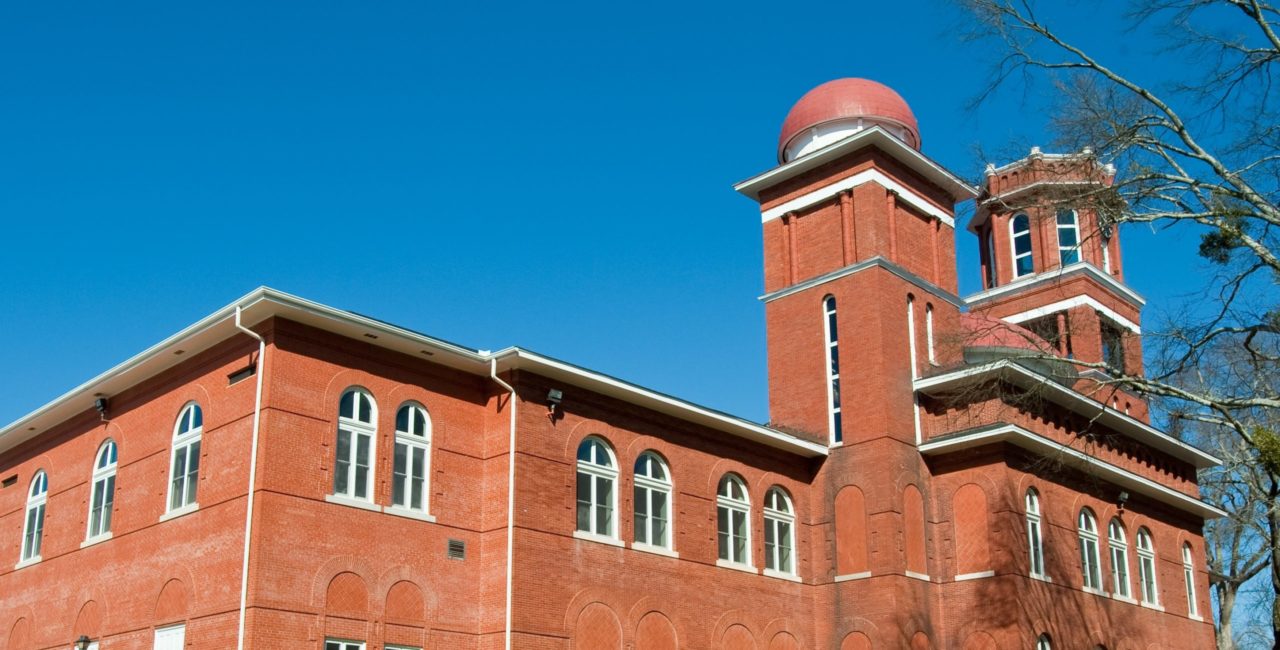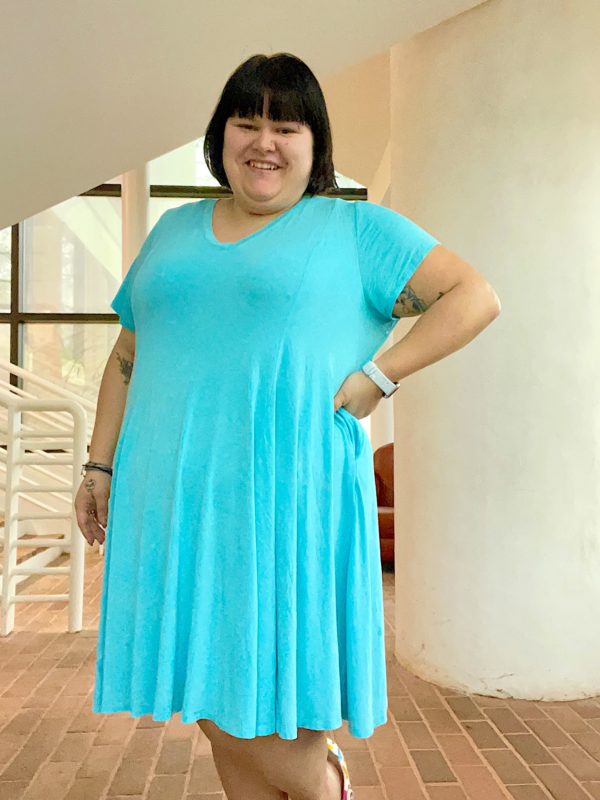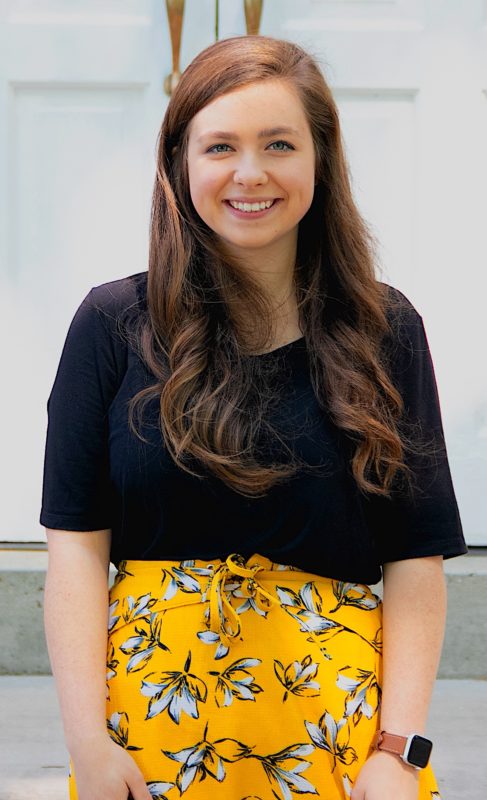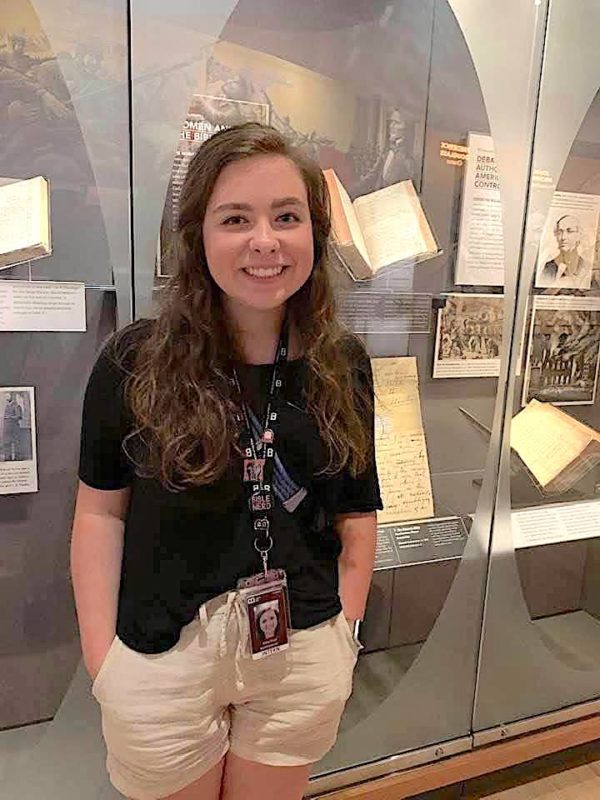
History majors present research at Phi Alpha Theta conference
Erskine College seniors Kaitlyn McCort and Mary Pratt presented research March 5 during a regional meeting of Phi Alpha Theta, a history honor society, at Belmont Abbey College in North Carolina. Accompanying the students was Assistant Professor of History Dr. Corinne Gressang, who serves as faculty sponsor for Erskine’s Phi Alpha Theta chapter. “This was an awesome opportunity for them to show off their undergraduate research,” Gressang says.

Kaitlyn, who is double majoring in history and English, presented her senior thesis paper on the rise and fall of American retail giant Sears and Roebuck— “Sears and Roebuck Company: A Mail-Order Business Surviving the Decades.”
“I was incredibly nervous about presenting because I had never been to a conference or presented like this before, but it was fun, and I got to see a panel of medievalists!” Kaitlyn says. “I am a medievalist at heart, and plan to go for a master’s in medieval studies in English—it combines history and English, both my loves and majors.” At each panel, she took notes, “because these people had amazing topics to present.”

Mary, who is double majoring in history and Bible and Religion, presented her senior research on the development of the American school system in a paper entitled “One Nation Under God, Two Education Systems: The Biblical Education Debate During the Founding Era of America.”
“I had never been to a Phi Alpha Theta conference before,” Mary says. “It was interesting to hear what other students my age were also researching in history. I learned a lot about Vikings, American foreign policy during the Cold War era, and America’s use of immigrants for cheap labor in the early 20th century.”
Kaitlyn enjoyed the experience of research and writing that preceded her presentation. “This paper took me places, literally,” she says, explaining that she went to the Library of Congress in Washington, D.C., to obtain a library card that would allow her to obtain research materials.
“I ended up being one of the few people allowed inside the photo room to look at photos because I was only in D.C. for a day. Thankfully, they had mercy on me and let me see the photos and catalogs that Sears left to the Library of Congress,” she recalls. “It was an amazing once-in-a-lifetime opportunity.”
Mary’s research began with an overview of the educational climate in America before the Revolution. She separated the colonies into regions and found that what they all had in common in the pre-Revolutionary period was “that their education was based around the Christian religion and biblical literacy,” she says.
“My argument is that the main rift in the two separate school systems (private education and public education) began in the Founding Era”— from the 1760s to the 1850s—“and not when prayer was taken out of schools in the 1960s.”
Both Kaitlyn and Mary have cultivated a variety of interests within the discipline of history and both have found that their two majors work together well.
Kaitlyn enjoys “the colonial period and American history in general,” but she also loves European and British history and “grew up learning Egyptian history” with her mother. She says that at Erskine, “I’ve always been encouraged to stay curious, to stay vigilant, and [keep] fighting for history.”
She has always learned history along with English, Kaitlyn says, and as a double major she has been eager to learn “the background, the backstories, and just everything I could possibly get.”
A high school teacher inspired Mary to major in history, but she says all the history professors at Erskine have contributed to her enthusiasm for the subject. “Each has had a different way of teaching, but each shows a passion for history that is contagious,” she says. She is especially interested in Biblical history, church history, ancient Near Eastern history, and American history.

Mary believes studying history “has made me understand the Bible more by knowing the historical context of the Bible and by seeing God’s hand throughout history and beyond the Bible as well.”

In addition to working hard to complete their double majors, Kaitlyn and Mary participate in a number of campus organizations and activities. Both are members of Choraleers and Chamber Singers. Both have participated in Applied Music Lessons for Voice this semester, Mary says, “although Kaitlyn has done it for many more semesters than I have.” Kaitlyn enjoys the campus group Magic and Monsters, is a member of the Creative Writing Club, and serves as a staff editor for The Mirror, Erskine’s student newspaper. Mary is president of the Student Christian Association, secretary for the Senior Class, historian for Erskine’s Phi Alpha Theta chapter, an editor at the Write Here Center, and a supplemental instructor for Old and New Testament Survey courses.
Kaitlyn plans to begin paralegal studies after graduating, then work to earn money to pursue her master’s degree in medieval studies. “Not only do I love legal culture and law, but I am prepared to research and write with an English and history degree,” she says. She believes paralegal studies will be “a little more laid back” than her double major at Erskine. “I won’t be taking 24 credit hours like I am now!” she says.
Mary’s post-commencement plans include getting married in June—“He is a current Erskine student also,” she says. She has accepted a position at Anderson Christian School as a high school Bible and history teacher for the 2022-23 academic year.
Phi Alpha Theta is an American honor society for undergraduate and graduate students and professors of history. Established in 1921 at the University of Arkansas, the society has more than 400,000 members, with some 9,000 new members joining each year through 970 chapters nationwide.
